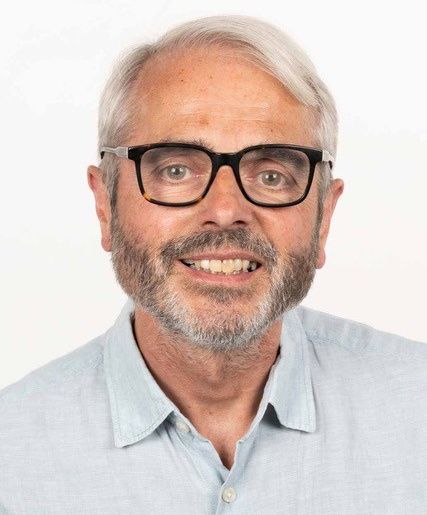Meet Professor Tom Evans
Our Dean for Global Engagement for the region discusses his recent work building partnerships with institutions in the Middle East and North Africa and invites interest from future partners.
I have recently been appointed as Dean for Global Engagement for the Middle East and North Africa. I am a clinical academic working in the School of Infection and Immunity within the University’s College of Medical, Veterinary & Life Sciences (MVLS).
What does a Dean for Global Engagement do?
The main aim for me is to promote partnerships with similar institutions within my region. Partnership is the key word – of benefit to both parties. Engagement can be at many different levels, including study abroad experiences, academic collaborations in undergraduate and postgraduate degrees, and joint research projects.
Although my background is in medicine, I am keen to develop academic collaborations across the whole spectrum of our university subject areas. The Middle East and North Africa have a rich cultural heritage and are home to some of the oldest civilisations on earth. There are many areas with potential for joint activities – such as literature, museum studies, education, languages, politics, and business, to name but a few. There is interest from universities in the region in areas outside of the traditional focus on medicine, science and engineering.
All potential collaborations must be built from the bottom up – they need academics to establish connections and build teaching and research activities. I can facilitate all such interactions and point to new areas where meaningful partnerships can develop.
Partnership development in the Middle East and North Africa
The University has some existing collaborations in research supervision at King Saud University in Saudi Arabia, and articulation degree programmes at the British University of Dubai – but I want to expand such partnerships across the region.
Saudi Arabia
We have been developing activities with a new partner, Princess Nourah University in Saudi Arabia. This is the largest female-only university in the world, with nearly 30,000 students and over 2,000 faculty members. The campus in Riyadh is vast and boasts state-of-the-art facilities in a wide range of disciplines. Recently, we had a very productive visit with colleagues from the School of Education and MVLS. There are real opportunities for developing joint academic research and teaching projects.
Saudi Arabia has recently instigated a new research funding stream led by the Research Development and Innovation Authority. For the first time, there will be grants which can incorporate an external international partner. Although the focus and location of the work must be in Saudi Arabia, external partners can contribute and be funded for joint activity. The first round of these grants has just closed, but over the next few years they have ambitious plans to increase the level of funding. This is a great opportunity to participate in joint research programmes, particularly in the fields of science and medicine.
United Arab Emirates
I recently visited the British University in Dubai. This institution offers several postgraduate taught degree programmes as well as PhDs, and more recently has started several undergraduate degree programmes. We have existing undergraduate degree articulations in Engineering and Computing Science, and our partner is keen to further strengthen these programmes as well as develop new areas of joint academic collaboration. All of the British University in Dubai’s courses are taught in English, and they also have available research funding from within the United Arab Emirates which can support external international partners. Again, there are numerous opportunities for joint research initiatives.
Egypt
Outside of the Arabian Peninsula, I am eager to develop academic links with universities in Egypt. There are many research-intensive universities in both the public and private sectors with whom I am keen to develop partnerships. Although we do have some links to institutions in Egypt, there is great potential for expansion. I have already contacted a number of potential partners, and I intend to visit early next year.

Professor Tom Evans
I’d be delighted to hear from international partners in the Middle East and North Africa who are interested in developing your work with Glasgow. Please get in touch at tom.evans@glasgow.ac.uk.

